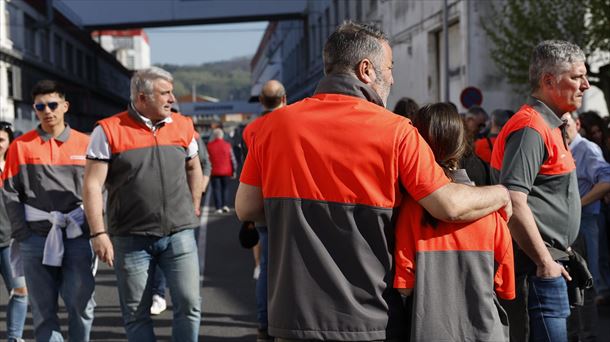More than 40 European leaders meet in Prague to discuss the situation on the continent and offer their support to Ukraine
Forty-three European leaders took part in the first meeting of the European political community in Prague this Thursday. Everyone, without exception, agreed on the importance of a meeting that is a first step towards an area that aims to expand cooperation and relations between the countries of the European Union (EU) with other countries that share the same values, but are not part of hair. The family photo also served to build a united front against Russia, which the leaders accused of carrying out an “unjustified aggression” against Ukraine and of “violating” international law.
Already at the entrance, Belgian Prime Minister Alexander De Croo emphasized that “the entire continent, except Belarus and Russia” was present at this informal summit. This double condition demonstrates, as he said, the importance of the meeting and how “isolated” the Kremlin is. Spanish President Pedro Sánchez also insisted on the importance of “strengthening cooperation” beyond the EU’s borders. Portugal’s António Costa spoke in the same vein, emphasizing that this experience is “the key to see if this format works and goes beyond traditional European encounters”.
The Balkans, Turkey, the United Kingdom… “They are all countries with which Europe has very important relations and shares core values,” said Sánchez. Spain hopes that the ‘pilot test’ will serve in the coming years to consolidate a common project. It is not the only one, as the leaders left Prague with a commitment to meet at least twice a year.
The remaining EU leaders were also pleased to extend the debate to countries such as Ukraine, Albania, Georgia, Turkey and Moldova – which are on the cusp of joining the bloc -; as well as to Iceland, Norway and the United Kingdom. French President Emmanuel Macron assured that it is “an important moment” to “bring a message of unity and develop a common strategy” in the face of the crises arising from the Russian invasion of Ukraine.
Countries like Iceland also valued a broad space to talk about policies that don’t just concern the EU. “It is very important that we talk about the future of Europe,” Icelandic Prime Minister Katrín Jakobsdóttir insisted. Lithuanian President Gitanas Nauséda compared the European political community to a figure similar to the United Nations in Europe. “Sometimes it’s hard for us to find a common denominator, maybe we’ll find it here,” he said. And they found that in the unconditional support for Ukraine in the face of Russian aggression. However, he assured that it is important that this platform is not confused with the procedures for joining the community bloc.
For his part, Albanian leader Edi Rama insisted that this is not a “new idea, but a very old idea, which is reborn with every crisis”. For Albania, which has been waiting to join the Union since 2014, and the Western Balkans “it is crucial” to go hand in hand with the EU “whether we are in or not”.
British “Prime Minister” Lizz Truss, who came in without making any statements, made it clear before his trip to Prague that this new European space “is not an alternative to the EU”. The United Kingdom leader, who left the bloc in 2016, had previously expressed her reservations with the European political community, but justified her presence by stating that her country should “participate in talks that affect the entire continent”. However, he stressed that England “is a sovereign and independent nation and we will act as such”.
And it is that the UK is one of the uneasy partners of this new platform. Relations with Serbia are also not at their best, after authorities have shown positions that are moving closer to Moscow. And Turkey, with its terms for Sweden and Norway joining NATO, will also be one of the problematic interlocutors. However, the aim is to have a multi-pronged debate to discuss European issues, on a platform that will not have real legislative power, but symbolic power.
Source: La Verdad
I am an experienced and passionate journalist with a strong track record in news website reporting. I specialize in technology coverage, breaking stories on the latest developments and trends from around the world. Working for Today Times Live has given me the opportunity to write thought-provoking pieces that have caught the attention of many readers.



